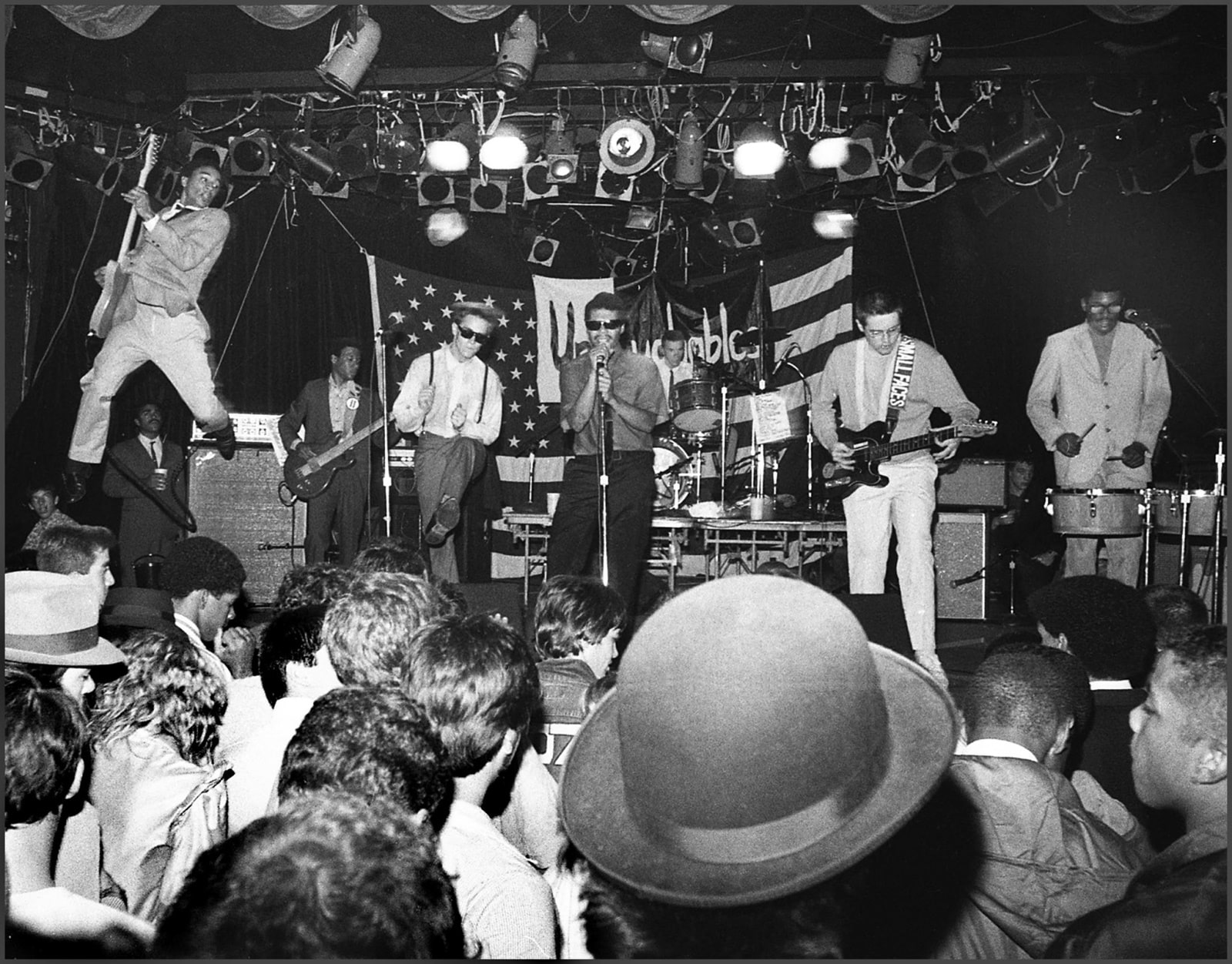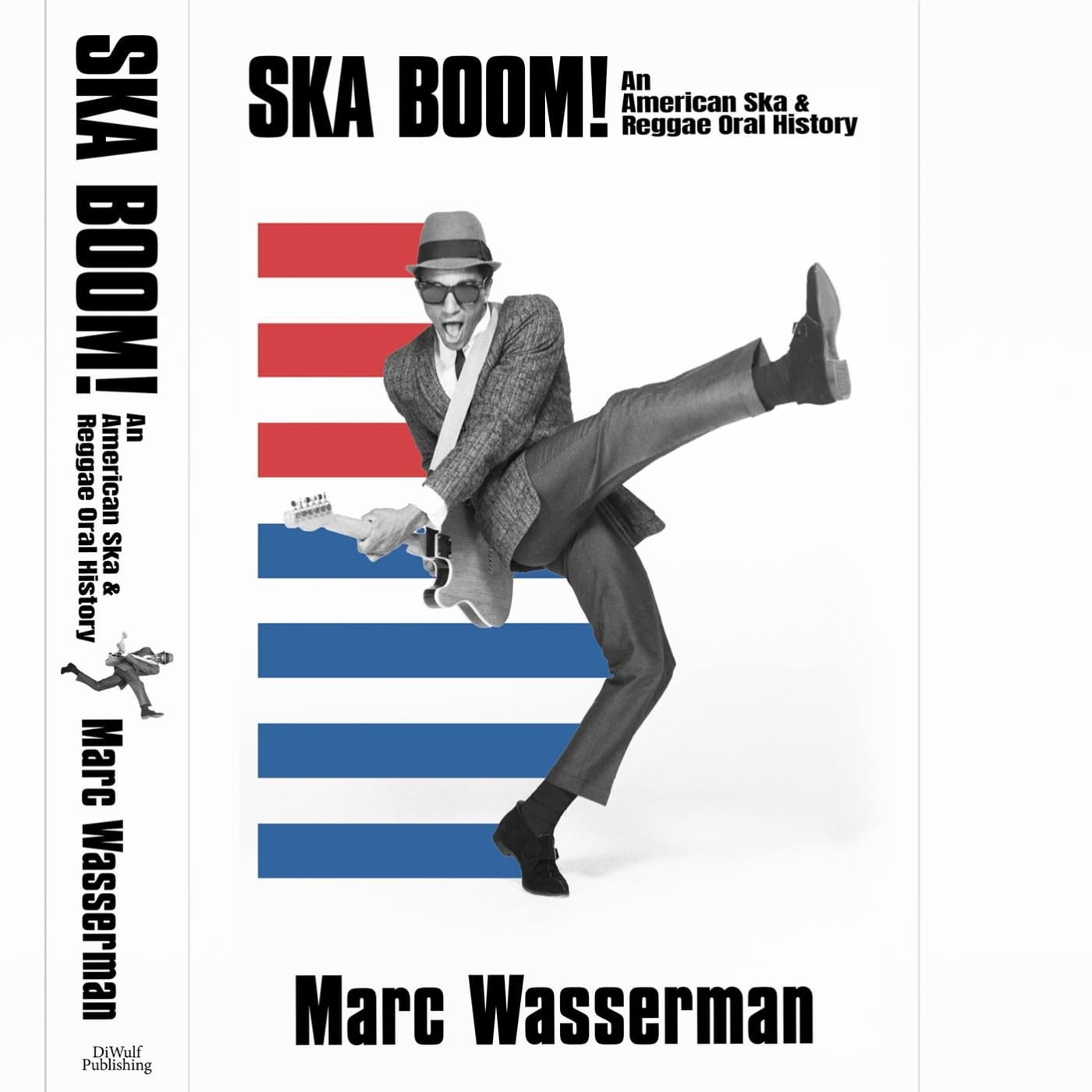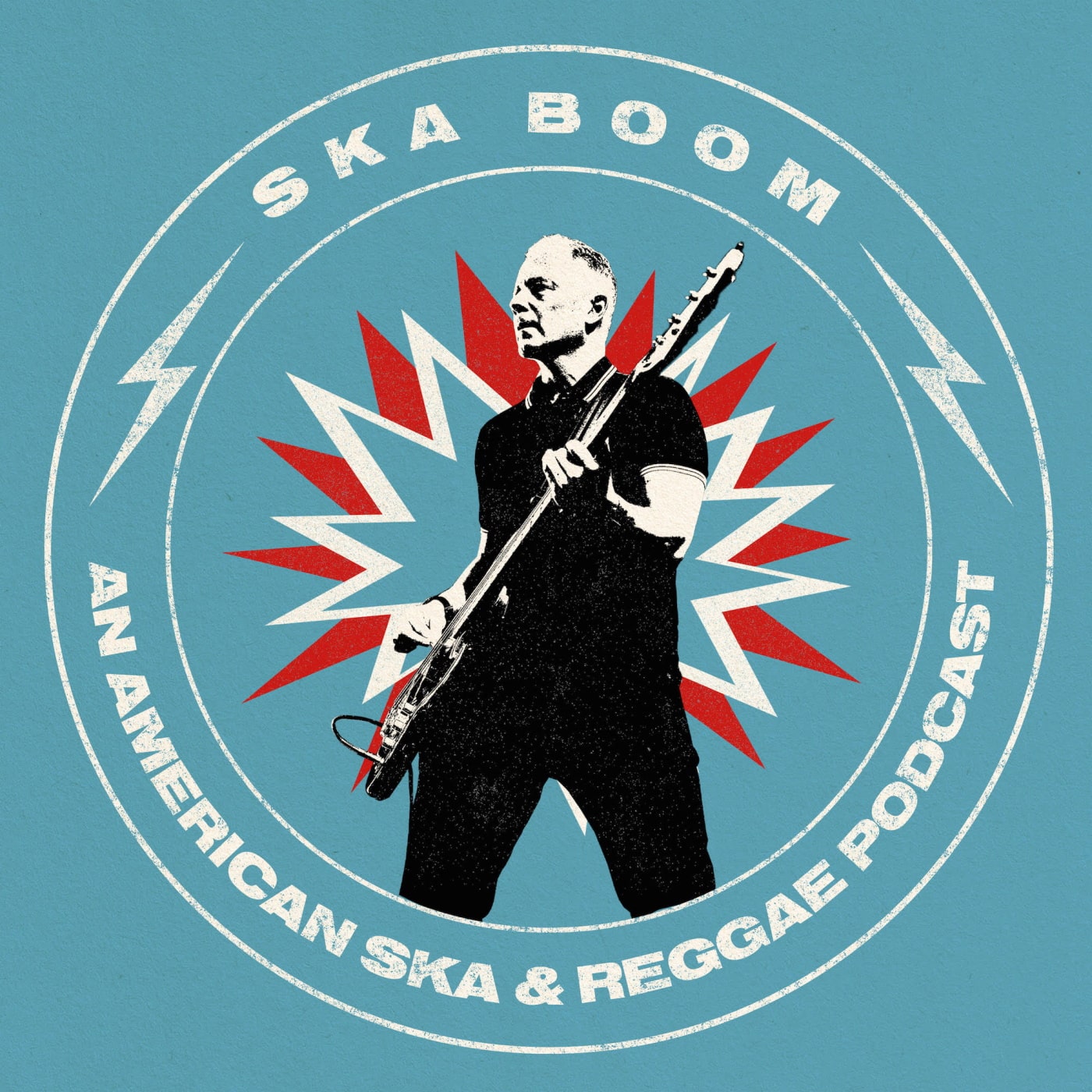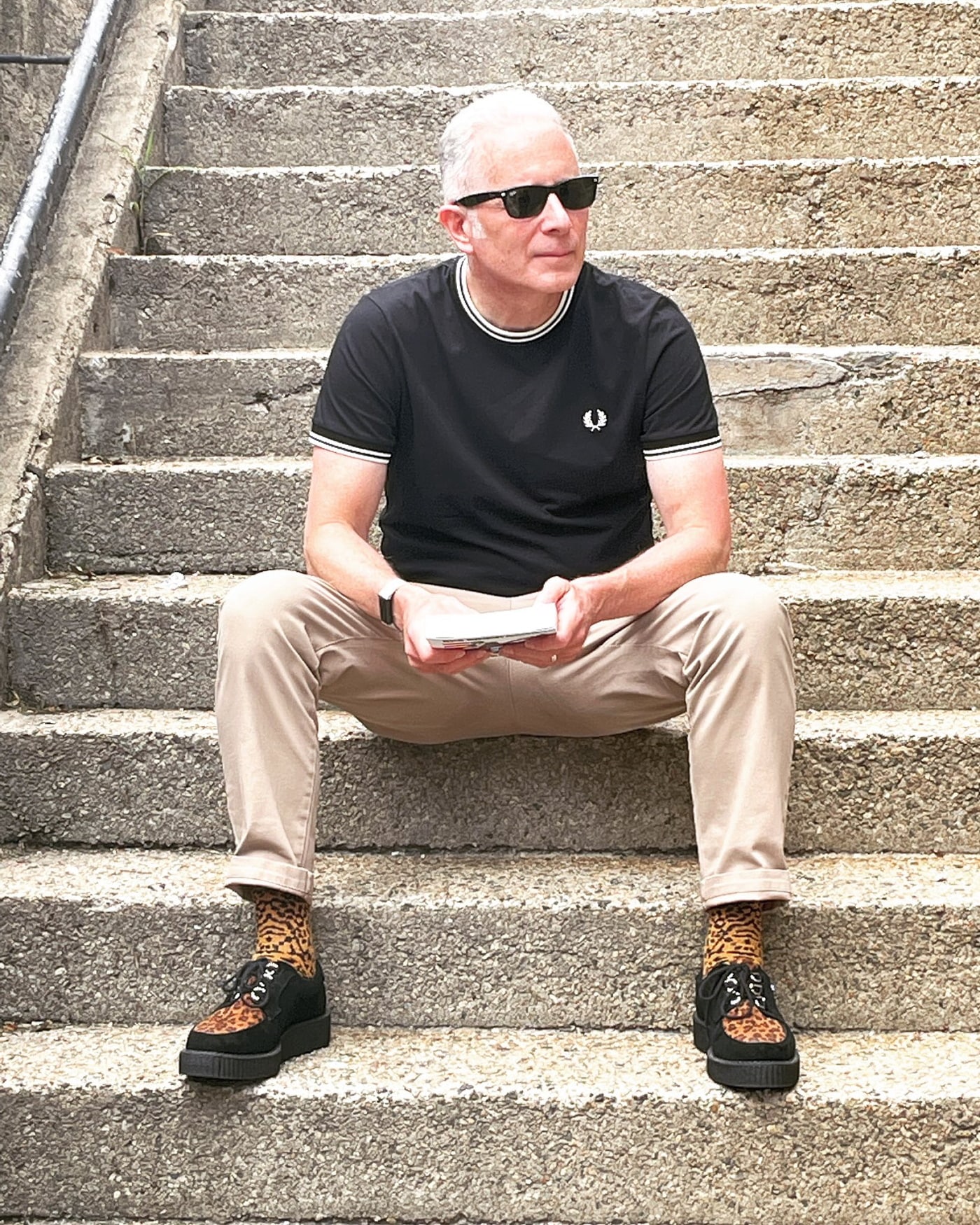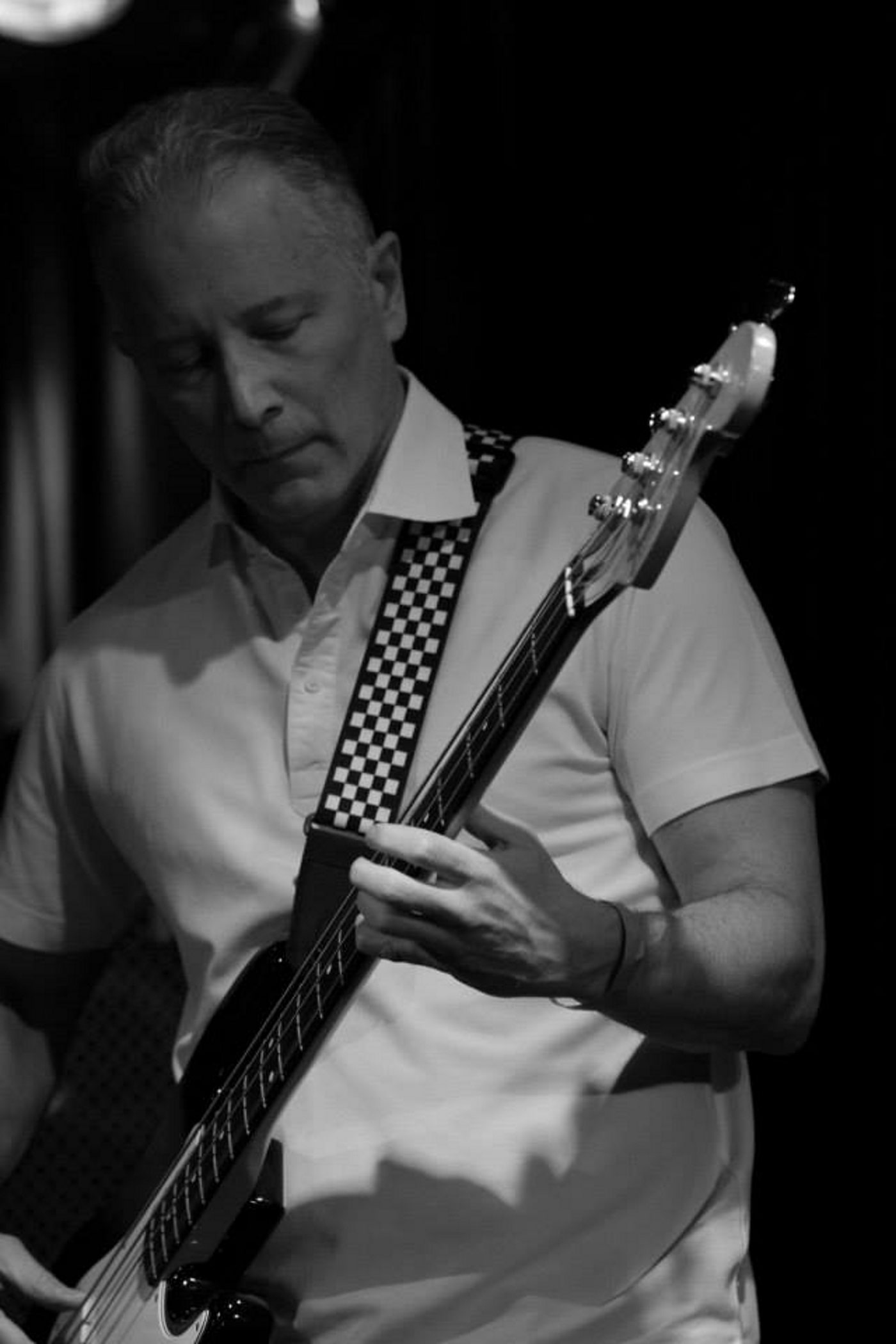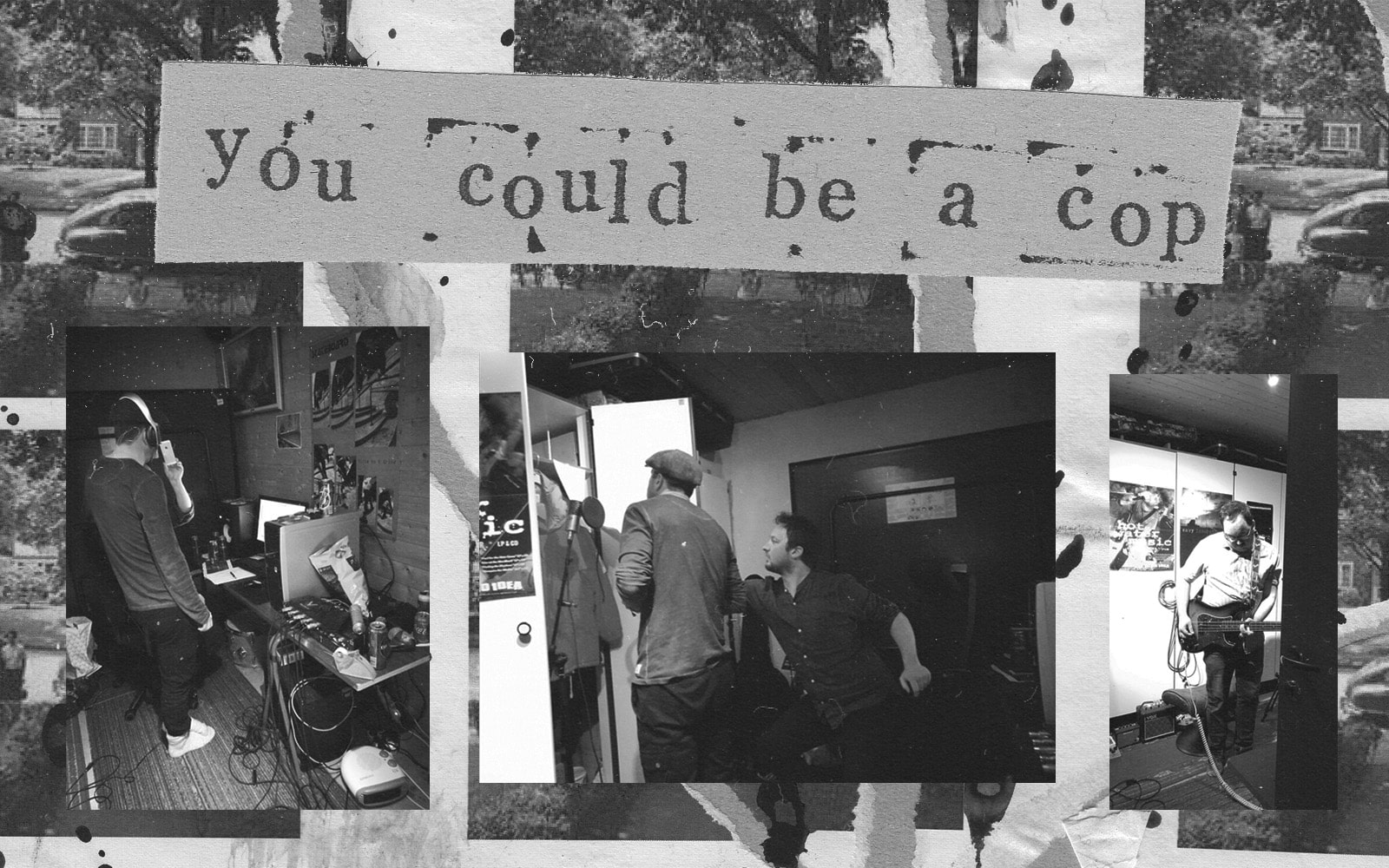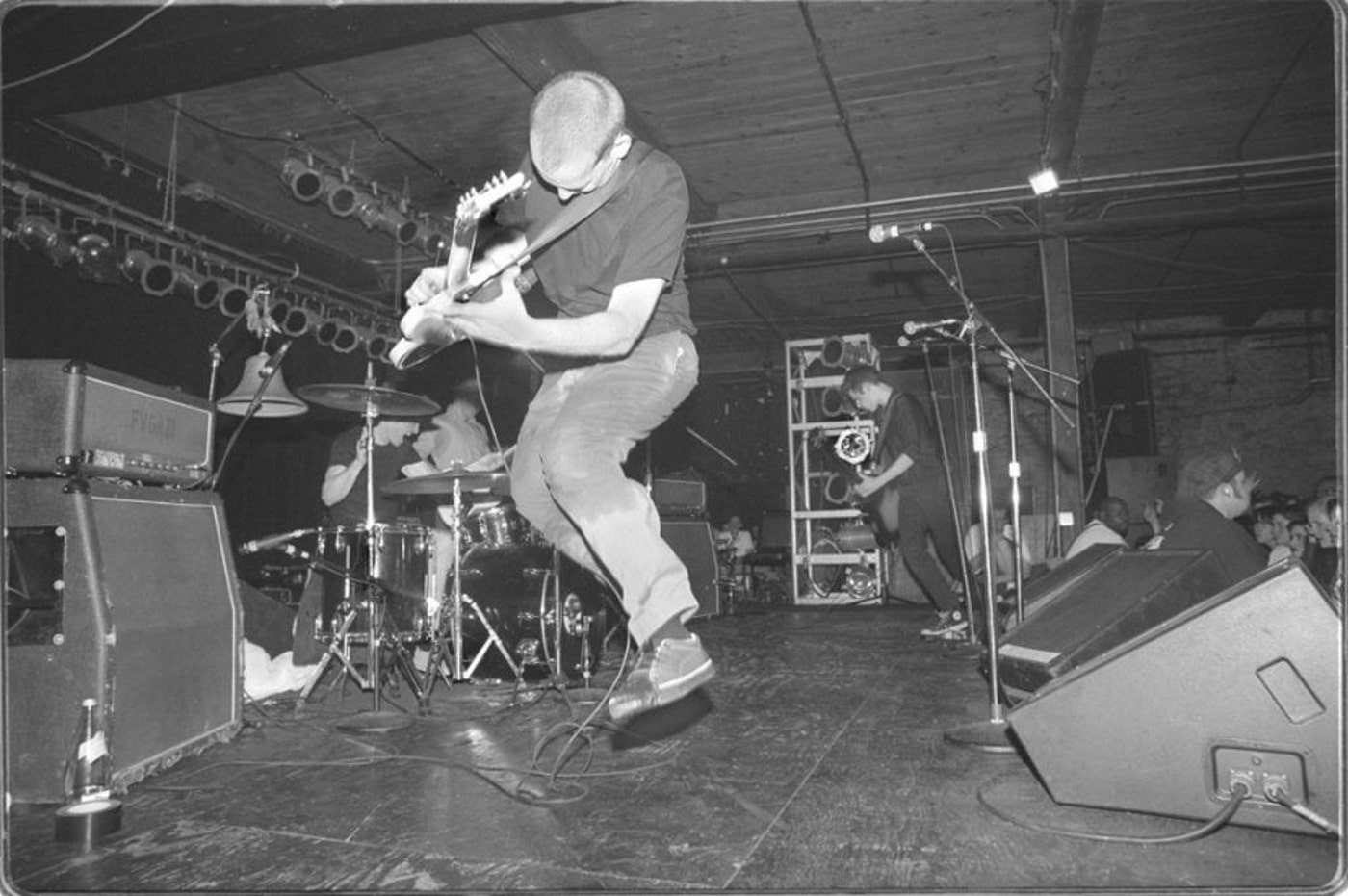Ska Boom! An American Ska & Reggae Oral History attempts to do what has never been done. In 400+ pages and across 19 chapters, author Marc Wasserman has knitted together the origin stories of the pioneers who created a uniquely American version of ska and reggae. These bands were formed and toured before the advent of the Inetrnet and smart phones, so their very little known about them and the important role they played in creating an American ska sub-culture that continues to thrive in the 21st century. We sat down with author Marc Wasserman to discuss the history of American Ska, its evolution and the current state of the thriving scene. Read the full interview below.
Musician, podcaster, and author Marc Wasserman’s debut book Ska Boom! An American Ska & Reggae Oral History is now available! Published by DiWulf Publishing House, the 400-plus page book is an exhaustive, extensive, entertaining, and action-packed tale about the pioneers of the American ska and reggae music scene.
Three and a half years in the making, this cinematic story is lovingly told through hundreds of hours of interviews with key musicians, artists, managers, club promoters, writers, and the fans who were there at the dawn of the ‘80s to witness the birth and spread of a uniquely American version of a time-honored subculture.
From the story of The Shakers, the first American reggae band signed to a major label deal by David Geffen, to the spreading wildfire of inspiration that was seeing The Specials on Saturday Night Live in 1980, to the mighty Skavoovee Tour of 1993 that helped give rise to the 3rd wave of ska, Marc collects hundreds of stories, anecdotes, history, gossip, and (most importantly) the feeling of what it was like as groups of young, ska-crazed acolytes spread their passion from Boston to New York and from Chicago to Los Angeles while igniting a fiercely loyal dedication to a burgeoning culture inspired by Jamaican ska, rocksteady and reggae, and British 2 Tone and mod sounds. The fashion, the feeling, the exciting days of true, DIY independence… Marc captures it all in this exciting, funny, intimate and informative tome.
Interviews include members of seminal bands The Untouchables (Los Angeles), Bim Skala Bim (Boston), The Toasters (New York), The Uptones (Berkeley, CA), The Scofflaws (Long Island, NY), Let’s Go Bowling (Fresno, CA) Mephiskapheles (New York), journalist and author Joel Selvin, as well as members of Fishbone, The Mighty Mighty Bosstones, Hepcat and more. The book also features some never before seen photos, an essay from Stephen Shafer (Duff Guide to Ska and former Moon Records’ director of promotions, marketing, and production), and a forward penned by Horace Panter of The Specials.
An interview with Marc Wasserman:
Hey there Marc! Thanks so much for sitting down with us and sharing your insights and thoughts about this great new project of yours! How are you? How’s your closest neighborhood during these crazy turbulent times?
Hi Karol! Thank you very much for inviting me to speak with you. I’ve been staying busy, while also trying to stay safe and healthy. Luckily, I live in a part of the US where people are vaccinated, wear masks and believe in science!
Amen :) Thanks for joining us.
Ok Marc, so how would you compare the current state of the world to your political, environmental and economical perspective from early and mid-80s?
In some ways the more things change the more they stay the same. Life under eight years of Ronald Reagan in the 80s was the precursor to four years under Donald Trump. Ideas about right wing identity politics, lack of concern for the environment and economics that favored the wealthy that were born under Regan came to full, terrible fruition under Trump. What’s interesting is that both eras, though 40 years apart, were rich for the arts and music and creative endeavors. I have always though that the best music has thrived under terrible Republican presidents.
Music industry wise, it was a completely different world, right? How would you describe your closest music community back then?
Completely different. The music industry of the 80s was about albums and radio play and seemed to be controlled by a few record companies who decided what we would hear and what was going to be marketed to us as consumers. The punk rock and ska movements were outside that system and that was what was so appealing about them. They were opposed to the status quo. They spoke to young people about the crazy lives we were living under trickle down economics under Reagan and Bush in the 80s and early 90s.
How did you get introduced to ska music? What are your earliest memories related to this style?
My “lightning bolt” moment of being introduced to ska happened when a friend played me The Specials very first album. I had never heard anything like it. It had an energy and sound that initially frightened me but that I was drawn to. Hearing that album was the gateway to other 2 Tone bands like The Selecter, The Beat, Madness, Bad Manners and more. Those bands sang about the struggles of everyday people in the UK that spoke to me as the product of a broken home and bullies in high school. The music helped educate me and gave me an identity when I needed it most. It’s fair to say that ska music helped to save my life.
Punk and reggae came together in the 70s as one of the most game changing genre blenders back then, but ska was made for dancing in the late 1950s. Can you give us a proper brief history tour of its early days and how it became popular in the States?
The short story is that Jamaicans heard soul, jazz and R n B from the US on their radios and from records that Jamaicans working as merchant seamen brought home with them to Jamaica. Those sounds were combined with indigenous mento and calypso to create ska, rocksteady and later reggae. Many Jamaicans who emigrated to the UK during the “Wind Rush” when the British invited them to come help rebuild cities destroyed during World War 2, brought those records to Engaldn with them. Soon enough the children of those Jamaican immigrants were living next door to and befriending white English kids and those sounds became the Motown of the UK. Those kids would later start bands like The Specials, The Selecter and Tegh Beat and records by those bands ended up being part of the new wave invasion of America in the late 70s and early 80s.
What were some of the key aspects of social, political and cultural origins of American ska back then?
It was very influenced by 2 Tone bands so it sounded similar and the style of dress was also influenced by 2 Tone bands. Early American bands also picked up on the idea of racial harmony and questioning the powers that be and writing songs that featured social commentary.
Could you name the most important turning points and milestones for American Ska?
The year 1985 was a crucial milestone for American ska. That year, three key albums were released: Fishbone’s self-titled EP, The Untouchables’ “Wild Child” LP and The Toasters’ “Recriminations” EP. Each was unique in its own way, but they all featured ska music mixed with rock, punk, and soul. Each one was the root for helping to develop a uniquely American version of ska.
What were some of the most unusual stories or anecdotes about the early days of ska that you learned from the interviews you conducted for Ska Boom? What kind of new truths have you uncovered about this unique part of music culture?
Many of the musicians I interviewed who started the earliest ska and reggae bands were very passionate about the music and Jamaican culture and ended up devoting their musical careers to it even though it was not financially rewarding. Some made pilgrimages to Jamaica and others spent many years learning how to authentically play the music the way it was originally intended.
Has your connection to ska changed since you made it a solid part of your life?
Ska has been a constant in my life for more than 40 years. Its only gotten deeper since I became a musician, started blogging about the genre and then spent 3 1/2 years writing this book and now podcasting about it.
Ok, so what’s the state of American Ska in 2021?
Very healthy! There are many current American bands — ska punk, traditional, third wave influenced — that are all branches of the roots of the bands featured in my book. I like to say that without Bim Skala Bim there is no Mighty Mighty Bosstones. Without The Uptones there is no Operation Ivy or Rancid. Without Gangster Fun there is no Suicide Machines or Mustard Plug.
How has its stylistic characteristic changed over the years and how would you describe the current version and most popular take on ska?
What’s beautiful about the current state of American ska is that there seems to be a band for every fan. There are established bands still playing and touring like The Slackers, Mighty Mighty Bosstones and Hepcat and Mephiskapheles. There are newer bands that have emerged/re-emerged like Catbite and We Are The Union and bands on the Bad Time Records label, and there are a number of notable regional bands like Hub City Stompers, Half Past Two, The Scotch Bonnets that deserve mention too. There is a band for every type of ska fan.
Why do you think it continues to thrive?
Because ska is mutable. It can be mixed with other sounds like punk, metal and indie rock to create new genres that sound diverse and interesting.
Ok Marc, so getting back to your impressive new publication, please tell us, what inspired you to decide to dive into the details of this story and write a book that tells the history of ska in America?
Its an era of American ska that has never gotten credit for the important role that it has played in popularizing a uniquely American version of ska.
Given the fact that you have interviewed hundreds of musicians, band managers, club promoters, fans and music industry veterans, how tough was the process? Where did you find that strength to push such a huge project?
The oral history format seemed like the only option for telling the story of this era of American ska. It existed before the Internet and cell phones with cameras , so there is very little evidence for its important role in American music. I also felt it was important to have the actual musicians, promoters and fans tell the story themselves. I didn’t want to run it through my filter and experience. It was important that it be told by the people who created it themselves. But the challenge of the oral history format is that it takes a lot of time and dedication. It requires time and perseverance, But all the hard work was worth it!
Well, Marc, thanks so much for your time and once again, huge congratulations on this amazing and super important historical document. Feel free to share your final words, tease your future projects and take care! All the best from Warsaw!
I still play ska and reggae versions of 80s new wave songs in Rude Boy George and also write and record original ska and reggae songs with Heavensbee, which is a 21st century take on 2 Tone.
Book Synopsis
American ska and reggae has its roots in Berkeley, CA home of The Shakers, one of the very first American reggae bands signed by David Geffen to Elektra Asylum Records, who released “Yankee Reggae in 1976. It also took root in Kansas City, MO where the Blue Riddim Band emerged in the 70s and were one of the first American bands not made up of Jamaicans to convincingly perform reggae. They were notable for being the first American reggae band to be invited to perform at the Reggae Sunsplash festival in 1982 and 1983. The recording of the group’s 1982 Sunsplash performance “Alive In Jamaica” was nominated for the Grammy Award for Best Reggae Album in 1986.
As 2 Tone exploded in the UK in 1979, its impact and effect were quickly felt on this side of the pond, as import albums arrived in US record stores and college radio began playing them. Later, The Specials incendiary performance on Saturday Night Live in April, 1980 brought the look and sound of punk influenced ska into the homes of many of the musicians who later started the bands featured in Ska Boom.
Soon enough, as the 80s dawned, a new wave of ska bands who mixed the sound of 2 Tone with reggae, punk and mod sounds popped up in Boston (Bim Skala Bim), New York (The Toasters, The Scofflaws, Mephiskalpheles), Philadelphia (The Hooters), Chicago (Heavy Manners), Detroit (Gangster Fun) and across California from Berkeley (The Uptones) to Fresno (Let’s Go Bowling) to Los Angeles (The Untouchables).
Marc Wasserman Biography
Marc Wasserman has devoted most of his life to his love and passion for ska and reggae music. Seeing The English Beat and Madness during the spring and summer of 1983 changed his life. Discovering the vibrant New York City ska scene of the mid-80s that was then in full gear, convinced him to pick up the bass and start writing his own 2 Tone influenced songs.
As the co-founder and bassist for Bigger Thomas – the first ska band from New Jersey that formed at Rutgers University in New Brunswick, NJ in 1988 – he had a front row seat for the ska boom that exploded across the US in the late 80s and early 90s.
Bigger Thomas released 4 albums over 20 years – their self-titled debut in 1989, Resisting Success (2004), We Wear The Mask (2005) and Steal My Sound (2010). The band performed with a who’s who of internationally known ska and reggae bands including Special Beat, The Selecter, Bad Manners, The Skatalites, Jimmy Cliff, Yellowman, Burning Spear as well as The Alarm and De La Soul. Bigger Thomas also shared the stage with many of the bands and musicians featured in Ska Boom!
In 2013, Marc helped to co-found Rude Boy George, a band that performs ska and reggae versions of 80s new wave and post-punk songs who have released 2 albums and an EP and in 2014 he founded Heavensbee, a collective of musicians that have created a 21st century take on 2 Tone and have released two albums and have contributed songs to several compilations.
Marc started writing about ska in 2008 when he started the Marco On The Bass blog which covered all aspects of the American ska and 2 Tone sub-culture, and the popular response to the blog and its coverage of early American ska and reggae was the initial inspiration for Ska Boom!
More recently, Marc started the Ska Boom podcast to expand on the stories and anecdotes from the book and to highlight the social, political and cultural origins of American ska, as well as the ways that punk and reggae came together in the 70s and 80s to change the look and sound of modern music.
Ska Boom! is Marc’s first book and took 3 ½ years to research and write, and included interviews with hundreds of musicians, band managers, club promoters, fans and music industry veterans. The book features 19 chapters on 18 key American bands – including The Toasters, Bim Skala Bim, Mephiskapheles, The Untouchables and many more– and one coast-to-coast US tour in 1993 that helped give birth to a uniquely American version of ska and reggae.



